The views expressed in our content reflect individual perspectives and do not represent the authoritative views of the Baha'i Faith.
Why does racism flourish in the world? Perhaps because it’s not enough to merely believe in the oneness of humanity – that vision of oneness has to take shape in our lives and in our daily actions.
The Baha’i writings highlight the importance of translating thoughts into action:
Let your acts be a guide unto all mankind, for the professions of most men, be they high or low, differ from their conduct. It is through your deeds that ye can distinguish yourselves from others. Through them the brightness of your light can be shed upon the whole earth. – Baha’u’llah, Gleanings from the Writings of Baha’u’llah, p. 305.
What profit is there in agreeing that universal friendship is good, and talking of the solidarity of the human race as a grand ideal? Unless these thoughts are translated into the world of action, they are useless. – Abdu’l-Baha, Paris Talks, p. 16.
My friend Susan’s story exemplifies this powerful Baha’i principle. A white Baha’i, Susan has devoted so much of her time and energy to building solid, sincere relationships with her African American friends. She tries to put into practice the ideals that most often just talk about.
Many people forget how important universal friendship is for racial unity. When I asked Susan what she would say to the 75% of white Americans who do not have anyone from a minority culture in their social circle, she said:
I think as white people we have a choice: we can sort of sit in our privileged position and not think about it very much, and stay comfortable, or we can start to understand that our privilege comes at a cost to [African Americans] …. Once we take on the idea that our privilege is coming at a cost to other people, it becomes unacceptable to continue on the same path if we really believe what Baha’u’llah came here for – a world transformed to a society built on principles of love, unity, and justice.
Baha’is believe that humanity will one day build that society based on love, unity, and justice. The Baha’i teachings don’t view world peace as an unattainable ideal, but as an inevitable outcome in the future of humanity – as long as we work together for it. Shoghi Effendi, the Guardian of the Baha’i Faith, outlined the necessary steps to bring about this unity in diversity, and said that the first step requires taking the initiative:
Let neither think that they can wait confidently for the solution of this problem until the initiative has been taken, and the favorable circumstances created, by agencies that stand outside the orbit of their Faith. Let neither think that anything short of genuine love, extreme patience, true humility, consummate tact, sound initiative, mature wisdom, and deliberate, persistent, and prayerful effort, can succeed in blotting out the stain which this patent evil has left on the fair name of their common country. Let them rather believe, and be firmly convinced, that on their mutual understanding, their amity, and sustained cooperation, must depend, more than on any other force or organization operating outside the circle of their Faith, the deflection of that dangerous course so greatly feared by Abdu’l-Baha, and the materialization of the hopes He cherished for their joint contribution to the fulfillment of that country’s glorious destiny. – Shoghi Effendi, The Advent of Divine Justice, pp. 40-41.
Susan shared that she turns to this quote for guidance often:
I think for white people, [we need to make] the choice to learn the truth about race and learn the truth about the systemic oppression in the society in which we live to begin to uncover the layers of privilege [and] really understand the painful experiences that our [African American] friends go through every day. We have to be willing to walk into the discomfort, we have to be willing to be humbled, we have to be willing to learn to exercise extreme patience, we have to learn to overcome our tendency towards a patronizing attitude – all the things the Guardian [Shoghi Effendi] spoke of. I don’t think that I could learn those things without those very close friendships with [people of African descent] because it’s one thing to kind of sit in a bubble and … see each other at meetings …, but that doesn’t necessarily break through the barriers that really separate us – the barriers of what it means to live as a white person in this country and what it means to live as a person of color in this country. So, I think for me, without the close friendships and the trust and willingness of my friends to teach me and share with me and walking very closely with them through difficult times, I would not have started to learn what I needed to learn.
Now, I am not advocating for white people to seek out people of color and essentially use those people only to educate themselves about racism and white privilege – but I encourage everyone to look within themselves and ask: “Does my social circle reflect the diversity I believe in? If it doesn’t, why not?” “Are my friendship choices contributing to the integration or segregation of this country?” “Are my friendships helping me grow, or making it easier for me to stay the same?” Most importantly: “Are my friendships characterized by an extreme love and affection that transcend all differences?”
As the Baha’i writings say:
… ye must close the doors of difference and open the gates of affection, love and friendship. Ye must pulsate as one heart, and throb as one spirit. You must be like the waves, though they are innumerable they constitute the all-encircling sea. – Abdu’l-Baha, Star of the West, Volume 1, p. 7.
Susan expressed how grateful she feels for having such loving, enriching friendships with women of color:
Sometimes, I wonder how I ended up with the blessing of these extremely close friendships and that’s not for me to say, but I’m so grateful that my friends have the kindness, the willingness to trust, the open heartedness to share themselves, to share their lives with me, to welcome me to their home, to be in my home, to open our hearts together, to pray together, to share together, I just have a very profound and deep sense of gratitude.


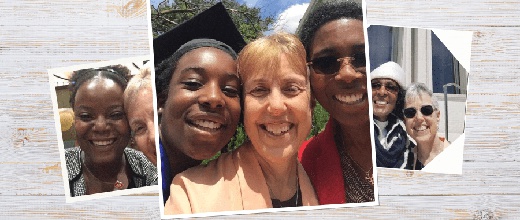





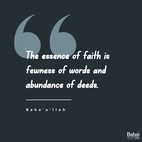
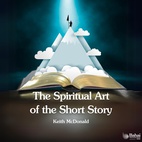
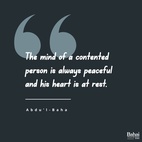
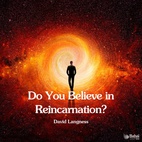
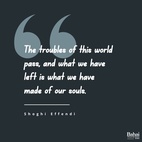
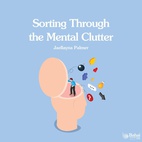
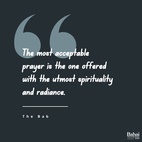
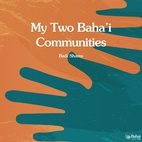

Comments
Sign in or create an account
Continue with Facebookor